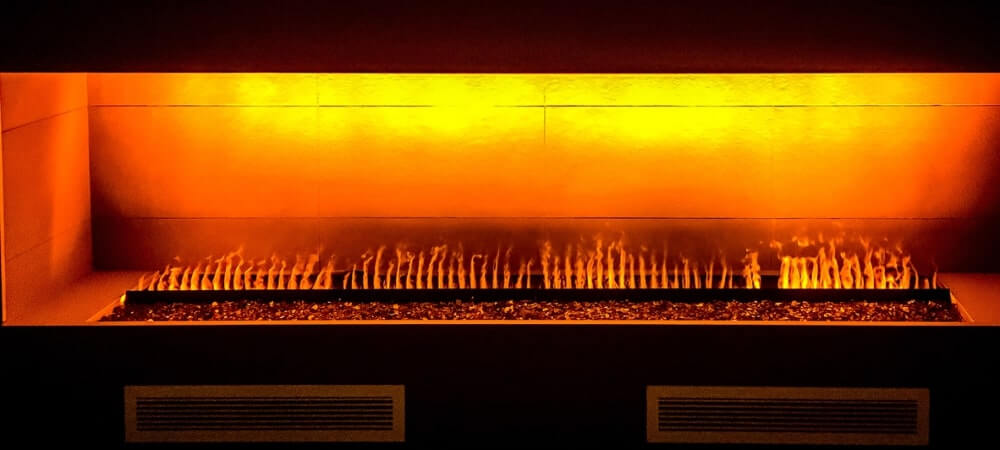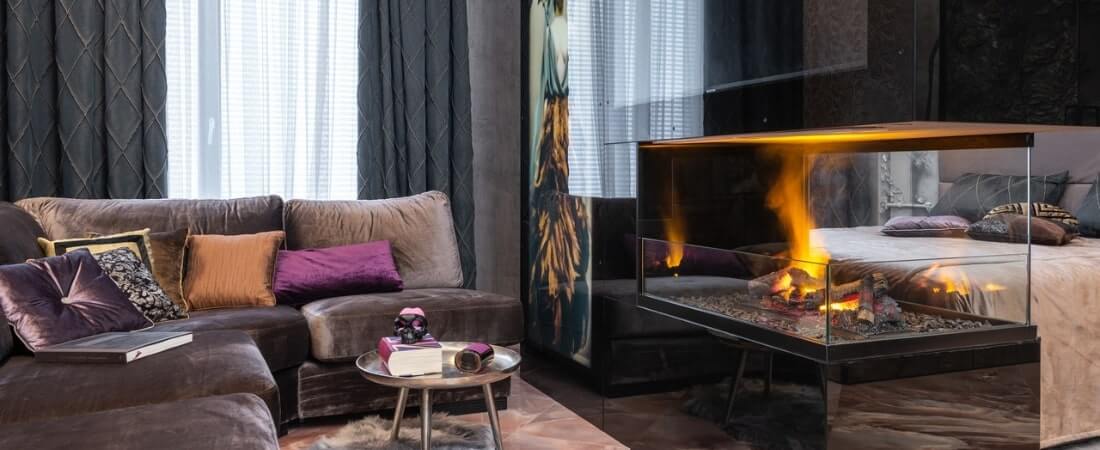
How to Prepare Your Gas Heating for Winter
The gradual approach of winter always comes with a false sense of security as warm days linger. Then, one day, there's a chill in the air that never leaves. And that's when natural gas heaters or a ducted gas heating system truly becomes your best friend.
However, if there is a positive about the cold air of winter, it’s the chance to fire up the heater! But you also want to be sure you’re ready and know just how to prepare your gas heating correctly.
The health and safety of your heating system are vital. A gas leak, clogged filters or faulty pilot flame could all lead to a range of issues, big or small.
To avoid them all, it’s always best to inspect and service a gas heater before regularly using it in winter. There are a few easy things you can do yourself, like cleaning, but there are a few tasks that only a licensed gas fitter and technician can do.
Let’s explore how you can prepare your gas heating for winter.
How You Can Prepare Your Gas Heating
Gas heating for the home comes in various options, from ducted gas heating systems to gas log fires and the traditional gas space heater. For optimal energy efficiency and maximum performance, we always recommend getting your heater cleaned and serviced before the winter season begins. Here’s how you go about it.
Clean Your Heater
Regardless of the type of heater you own, always keep it clean. Dust, dirt, pet fur and more will all build up over time, making them less energy efficient and likely impacting their performance. Clogged filters in a gas-ducted heating system also pose a health risk as allergens blow through the vents and throughout the home.
For a gas log fire, space heater or wood fireplace, gently use a soapy, damp cloth to wipe the surface. Alternatively, a vacuum cleaner is also perfect for removing dust or debris.
You can also use a can of compressed air to blow through any narrow gaps or holes.
Meanwhile, reverse cycle air conditioning, split systems and many smaller gas space heaters also include filters that need cleaning at least once every three months. Split system filters are often the easiest to clean as they simply pop out once you have removed the air con cover.
Filters only need to be rinsed and soaked in soapy water or can be vacuumed. Ensure they’re always dry before you place them back in your ducted gas system.
Visually Inspect the Natural Gas System
One simple task you can complete is a visual inspection of the heater to make sure it is winter-safe. It’s often the subtle signs of damage that we take for granted the most. But a tiny issue could soon evolve into a larger one.
During a visual inspection of your gas heater, check to see if there are:
- Soot stains or discolouration
- Cracks or damage in the heater/heat exchanger
- Signs of corrosion, including holes
And if you do feel confident enough to fire up a unit like a gas log fire, inspect the pilot light. The flame should be a bold blue rather than a weak yellow/orange. If the pilot flame does appear to be struggling, it will need servicing ASAP.
Also, be sure to use your nose. Contact a professional for an inspection if the burning odours continue. Likewise, always act quickly and contact a professional gas fitter if you smell gas.

How a Licensed Technician Prepares Your Gas Heating
You must get your heater serviced by a licensed gas fitter, whether it be ducted gas heaters, wall furnaces or one of the many other heating systems on the market. Not only are you required to by law, but there are safety factors to consider. You also run the risk of voiding the warranty of your gas appliance.
Provide a Thorough Gas Heater Service
A professional heater service provides additional peace of mind. Some of it will crossover with what you can do yourself, though. For example, an expert will also perform a visual inspection for damage, but with more detail.
They can inspect the heat exchanger for cracks and examine the pilot flame, pilot injector, fan, main burner and any hoses or fittings. A licensed technician will also use the appropriate tools to assess the health of the flue system for blockages, corrosion or other damage. Therefore, if anything is wrong with your central heating system, they can promptly repair the fault.
Another part of the process includes gas leak detection and a carbon monoxide detection test.
Protect Your Home Against Carbon Monoxide and Gas Leaks
Faulty gas heaters and other gas appliances can produce and release too much carbon monoxide (CO) during gas combustion. In an improperly flued gas heater, as well as unflued gas heaters in general, the odourless gas can cause unwanted health side effects. Potential concerns include nausea, dizziness, headaches and fatigue. Exhaust gases can also be fatal in high concentrations or with prolonged exposure.
Meanwhile, a gas leak in your home heating can lead to similar side effects, although the recognisable rotten egg smell means it is typically more noticeable. However, that doesn’t mean it’s not a risk. A gas heater should be serviced and tested by a licensed gas fitter at least every two years.
In addition to a service, you can also install a carbon monoxide detector. Also known as a carbon monoxide alarm or a CO alarm, it detects any CO leakage using various methods, such as a biomimetic sensor, electrochemical sensor or metal oxide semiconductor.
A carbon monoxide detector can be a standalone product or a two-in-one alongside a smoke alarm.
Why Ducted Gas Heating Systems Need Cleaning
Ducted heating systems are a popular choice for Australian homeowners looking for an efficient way to heat their homes during the colder months. Cleaning the ducted gas system is crucial for several reasons:
- Enhancing efficiency: Regular cleaning of your ducted gas heating system ensures it operates at peak energy efficiency. Dust and debris can clog the system, forcing it to work harder and use more energy, leading to higher running costs.
- Prolonging lifespan: Just like other gas appliances, a clean ducted gas heater is likely to last longer. Maintenance helps identify potential issues early, preventing them from becoming significant problems.
- Ensuring safety: Gas heaters produce exhaust gases during the combustion process. A clean system ensures these gases are efficiently expelled from your home, reducing the risk of carbon monoxide poisoning.
- Maintaining air quality: Over time, ducted gas systems can accumulate dust and allergens. Regular cleaning helps maintain good indoor air quality, ensuring a healthier environment for your family.
- Optimising Performance: Keeping all components of your heating system clean and well-maintained ensures it continues to provide instant heat and efficiently maintains the desired temperature in the room.
Cleaning your gas ducted heating is imperative for ensuring it runs efficiently, lasts longer, and provides a safe and healthy environment in your home. Investing time in maintaining your heating system ensures warm air is distributed evenly throughout your home, making it a comfortable and cosy space for your family.
How Plumber Near Me Gas Fitters Can Help You
For a professional natural gas heater service, Plumber Near Me is the team for you. From central heating systems to gas space heaters and everything in between, we’ll help you determine the best gas heater to help you keep your home warm.
Our licensed technicians will provide a certificate of compliance on completion, leaving you with a true sense of security. We’re available for emergency repairs and general seasonal maintenance. Just contact us to learn more about our gas heating services.
Please note: This information is provided for advice purposes only. Regulations differ from state to state, so please consult your local authorities or an industry professional before proceeding with any work. See our Terms & Conditions here.